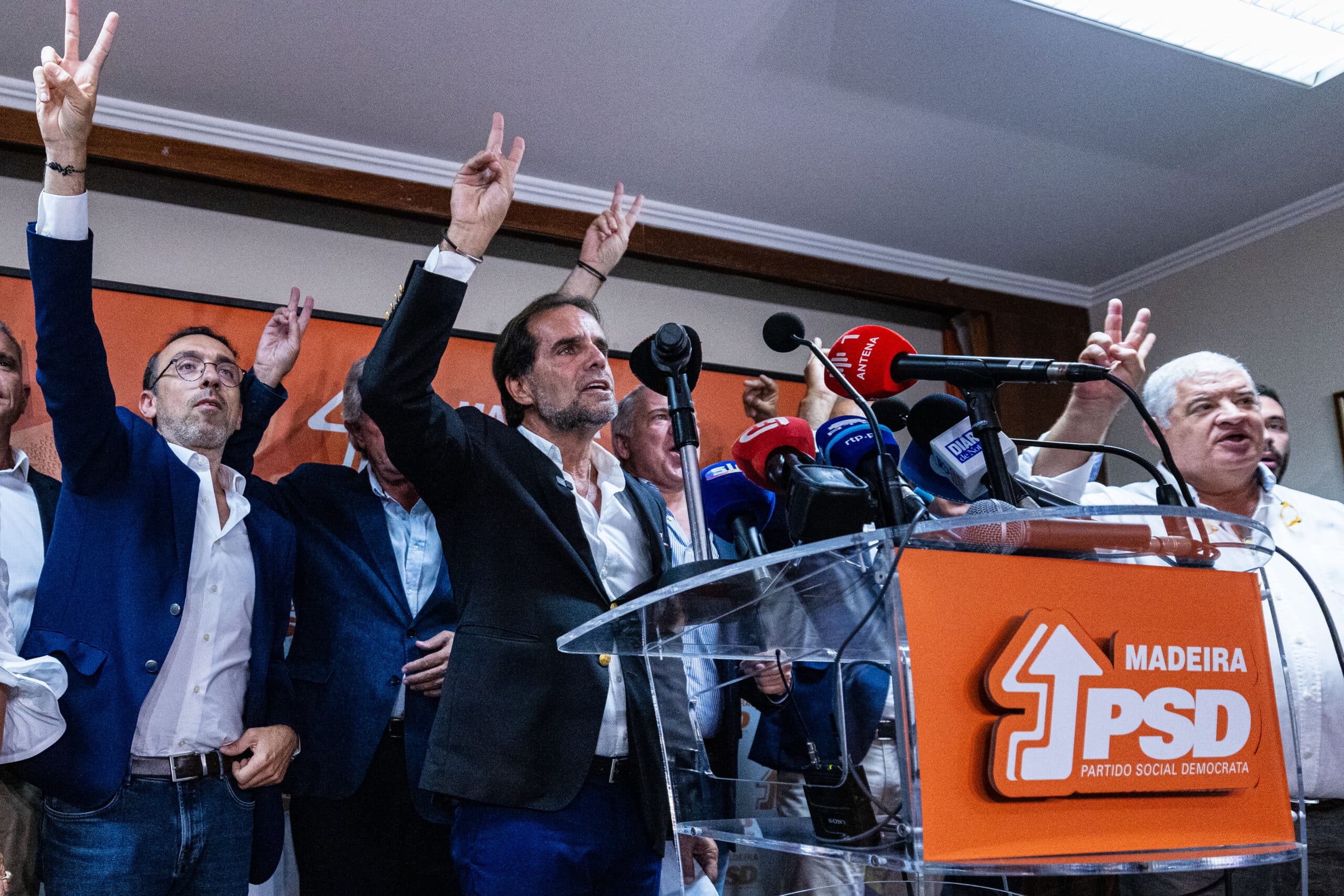Talks between parties are expected to begin today
Portugal’s Social Democratic Party (PSD) won the Madeira regional elections on Sunday with its worst result ever and without a majority in parliament.
The social democrats received 36.1% of votes, securing 19 seats in parliament, followed by the Socialist Party (PS) with 21.3% (11 seats) and regional party Juntos Pelo Povo (JPP) with 16.9% (nine seats). Far-right party Chega secured 9.2% (four seats), with Christian democrats CDS-PP in fifth with 4% (two seats), liberal party IL in sixth with 2.6% (one seat) and PAN, the party standing for people, animals and nature, in seventh with 1.9% (one seat). Left-wing parties CDU and BE received 1.6% and 1.4% votes and will not have any regional MPs.
In the last legislature, the regional parliament had 20 representatives from PSD, three from CDS-PP, 11 from PS, five from JPP and four from Chega. CDU, BE, PAN and IL had one seat each.
Abstention reached 46.6%, a 0.1% minor reduction compared to the 2023 election.
The early elections took place just eight months after the most recent vote, after the President of the Republic dissolved the Madeiran parliament, following the political crisis triggered in January when the leader of the regional government, Miguel Albuquerque, was accused in a case of alleged corruption and resigned.
The Madeira social democrat leader says he is now available to negotiate with “all the parties with parliamentary seats,” excluding the PS, and ensure a “government with stability”.
“The results are easy to interpret. We are the party that was chosen by the Madeiran people to govern,” he said, stressing that it is necessary to approve this year’s budget and a government programme by July.
However, he didn’t mention a specific party, nor did he indicate whether he intends to govern in a minority, negotiate a government agreement or a parliamentary agreement.
Portugal’s Prime Minister, Luís Montenegro (PSD), also said that the election’s results were “clear”, leaving “no doubts about the intention of the people of Madeira and Porto Santo: for PSD to lead the government and for the government to be headed by Miguel Albuquerque”.
Speaking on behalf of PS, Paulo Cafôfo had a different interpretation of the results: despite the fact that the right has won the majority of seats (PSD, Chega, CDS and IL have 26 seats, to which PAN could be added), he believes that “a change of government” is possible in the region.
The PS and JPP together have 20 seats, four away from an absolute majority in parliament, but the socialist regional leader aims to “build a new government with stability” and will “start contacts” with the parties with parliamentary representation, excluding PSD and Chega from these conversations.
“Out of the equation” for JPP are also PSD and Albuquerque, as assured by the party’s list leader, Élvio Sousa, who referred any further talks to Monday.
A regional government without Miguel Albuquerque is also one of the conditions imposed by Chega to support the PSD executive. If the PSD/Madeira president stays, he will have to “have the courage” to govern without a majority, according to Chega’s regional leader, Miguel Castro.
CDS-PP has already acknowledged its willingness to speal with all parties but has warned that it will not rejoin the PSD executive.
IL has also reaffirmed that it will not make deals with anyone, although it is willing to negotiate on a case-by-case basis. Meanwhile, PAN, expressing itself as “a party of openness, dialogue and construction,” has assured that it will not leave “anyone out” and will “always think about what is best” for the region.
Source: LUSA/SIC Notícias/Observador




















